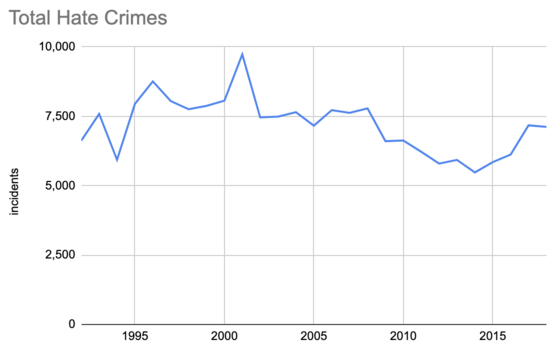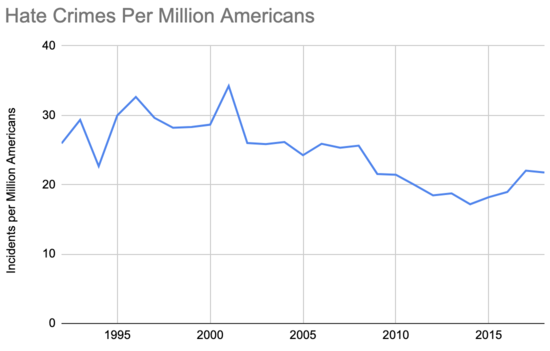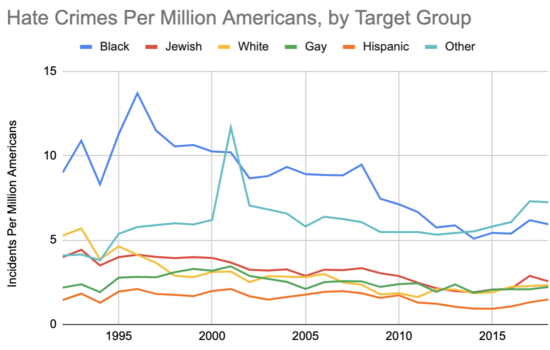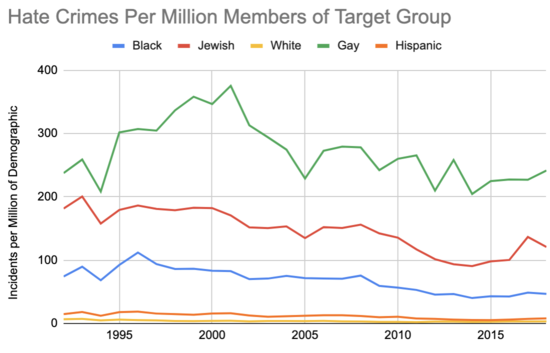Hate Crime Statistics |
May 3rd, 2020 |
| stats |
Since 1992 local police have reported crime information to the FBI under the Uniform Crime Reports program, and then the FBI collates them into an annual report. There's some risk of underreporting, or changing reporting levels over time, but this seemed really hard to look into and I decided to just using the numbers as presented in the reports. I couldn't find an annual table, so I went through the 27 published reports and pulled out the number of incidents from each report's Table 1 (raw data).
There were ~30% more people in the US in 2018, though, so we should look at per-capita numbers instead:
The report breaks down crimes by the motivating bias. The five most common, anti-Black (34%), anti-Jewish (13%), anti-White (12%), anti-Gay (10%), and anti-Hispanic (6%) account for 75% of the total incidents:
The spike in 2001 is coded as "Anti-Other Ethnicity/National Origin" but it's probably anti-Arab with 9/11.
Instead of normalizing by the total population, however, for specific biases it would be clearer to normalize by the population of the affected group. For example, how many anti-Hispanic hate crimes are there compared to the number of Hispanic Americans? Here's what that looks like for the same five most common categories:
This is very sensitive to the size of the target group, however. I've taken the number of Black and Hispanic Americans from the Census (pretty good), the number of Jewish Americans from the Statistical Abstract of the US (ok), and the number of Gay Americans from the General Social Survey (not so good, and other sources can give pretty different numbers).
Statistics are fundamentally a summary, and they can't be our only window to the world. But for questions like, "is this better or worse than it was ten years ago" they're a very powerful tool.
Comment via: facebook, lesswrong, substack



